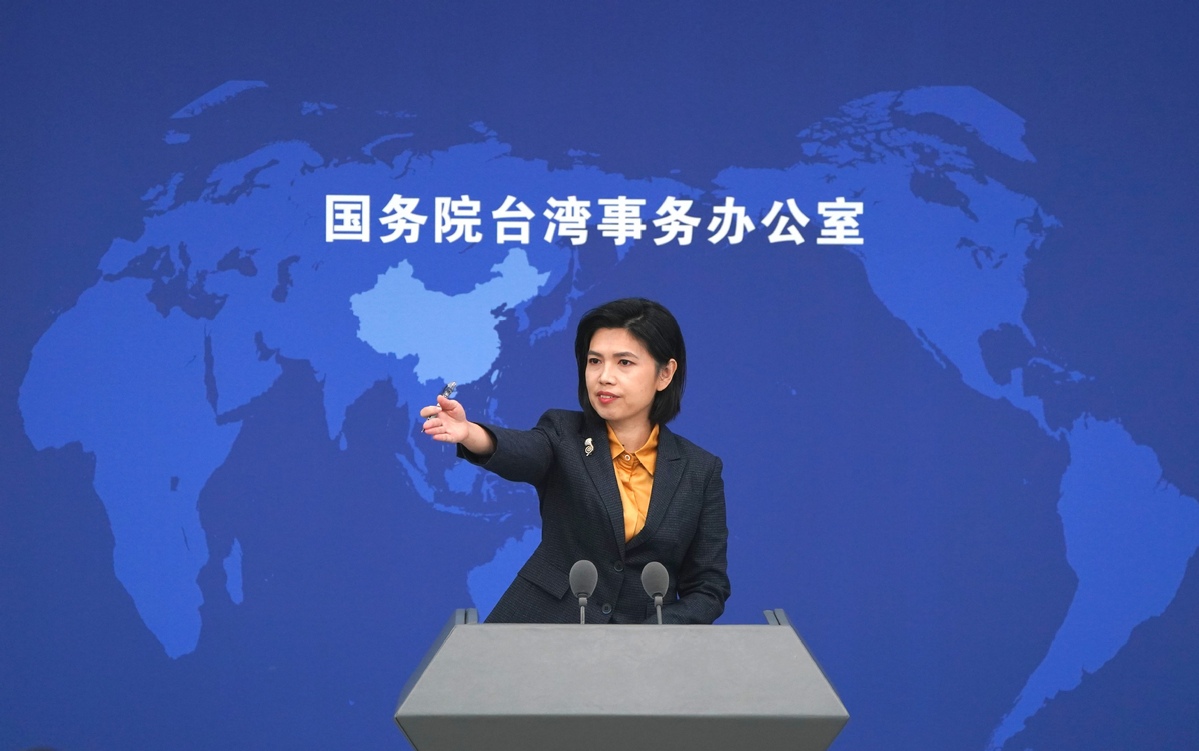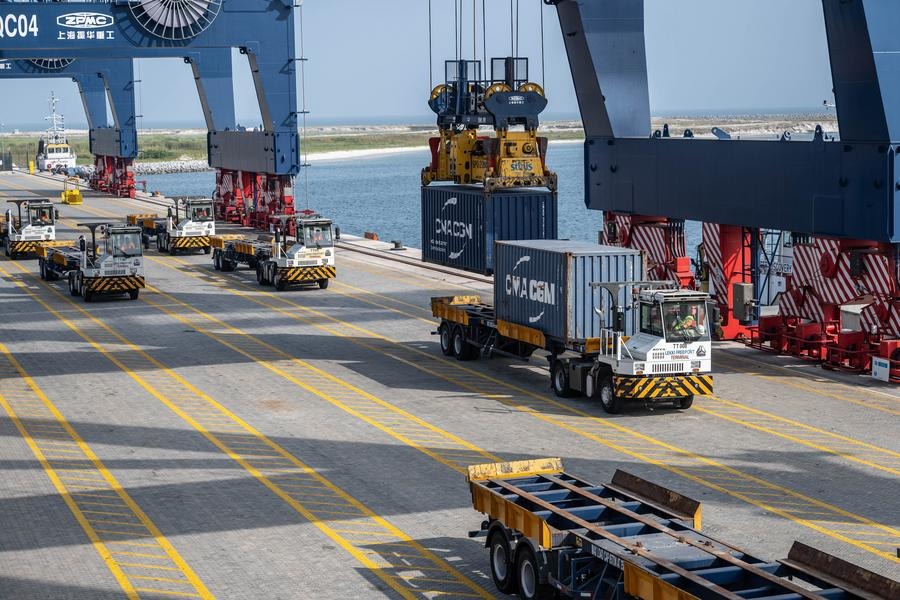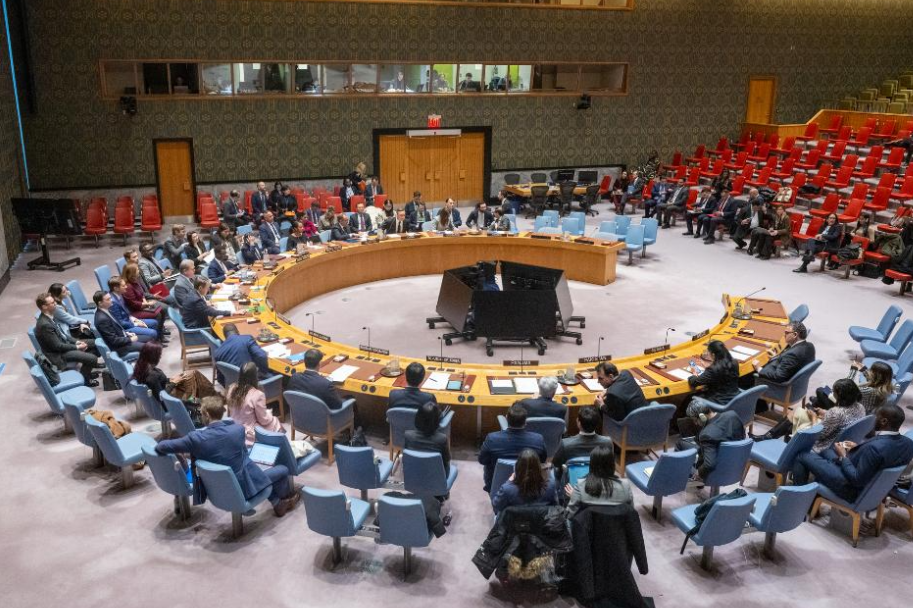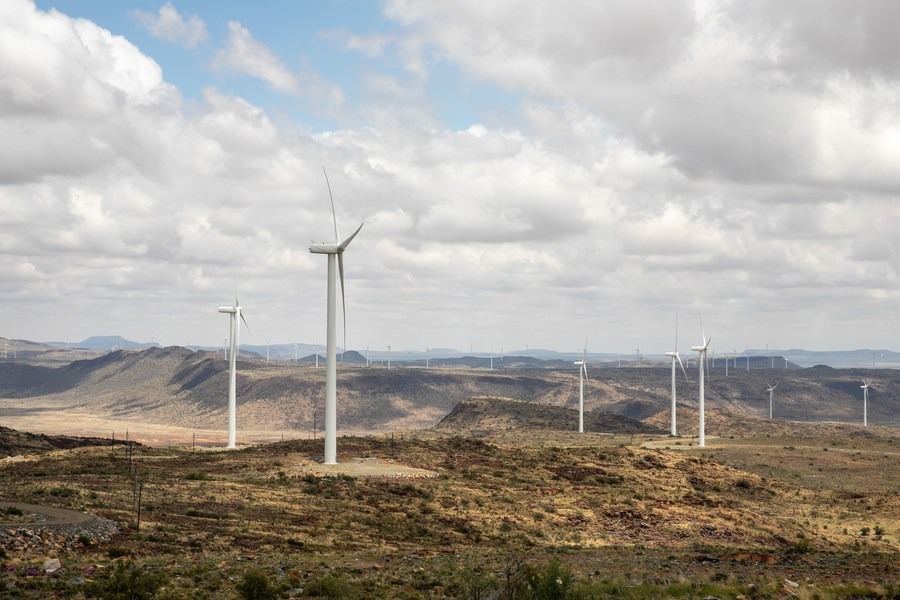Washington's provocative visits to Taiwan slammed


The United States is heading down a slippery slope after a visit to Taiwan on Tuesday by a group of US Congress members, experts said. They added that the visit demonstrates that Washington is seeking to normalize diplomatic interactions with Taiwan through de facto "official" visits, thus severely damaging China-US relations and peace and stability in the Taiwan Straits.
On Tuesday, a US Navy C-40A military transport plane carrying the US lawmakers, including Republican Senators John Cornyn of Texas and Tommy Tuberville of Alabama, made an unannounced visit to the island. Pentagon spokesman John Kirby later confirmed the trip, which has received a strong backlash from Beijing.
Kirby said on Wednesday that it was the second such congressional trip to Taiwan this year. He called the visit "fairly routine" and said it was "not uncommon for them to be transported on US military aircraft".
Zhu Fenglian, a spokeswoman for the State Council Taiwan Affairs Office, said on Wednesday that China opposes the US having any form of diplomatic and military interactions with Taiwan, and the US should stop sending the wrong message to Taiwan separatist forces.
"Taiwan secession means the end of peace and the onset of calamities," she said. "We hope the vast majority of Taiwan compatriots can open their eyes and don't become the victims of Taiwan separatist forces."
Senior Colonel Tan Kefei, spokesman for the Ministry of National Defense, said in a statement on Tuesday that the visit by the US lawmakers has blatantly interfered in China's domestic affairs, and has seriously undermined China's territorial sovereignty and peace and stability in the Taiwan Straits.
"The People's Liberation Army will remain on high alert, and will take all actions necessary to thwart any ploys by foreign powers and Taiwan secessionist forces," he said.
Tang Yonghong, deputy director of the Taiwan Research Center of Xiamen University in Fujian province, said that in recent years the US has passed several pieces of legislation that encourage diplomatic interactions with the island. Therefore, similar visits by US politicians will likely increase in the future, Tang said.
"We have to carefully evaluate the nature of these interactions and react accordingly based on their impact on the one-China principle and China's core interests," he said.
Tang said the US' long-term objective is to compete with China and contain its rise. Therefore, it is willing to play the Taiwan card to gain more geopolitical leverage against China, but it also wants to maintain a degree of strategic ambiguity to ensure the situation doesn't get out of control.
Strategic ambiguity refers to a carefully managed diplomatic position in which Washington deliberately keeps the Chinese mainland and Taiwan guessing about its true intention regarding the Taiwan question.
Li Haidong, a professor of US studies at China Foreign Affairs University, said the claim by the administration of US President Joe Biden of supporting the one-China policy is "highly deceptive", because the administration has been actively undermining China's territorial sovereignty by calling for Taiwan's participation in the United Nations.
"The US executive branch used to enjoy some diplomatic flexibility in regard to the Taiwan question by hiding behind its strategic ambiguity," he said. "But the recent visits by US lawmakers to the island are proof that the US Congress, which is overwhelmingly in favor of building a more robust relationship with the island, is dictating the White House's China-related policy. This is a very dangerous trend."

































